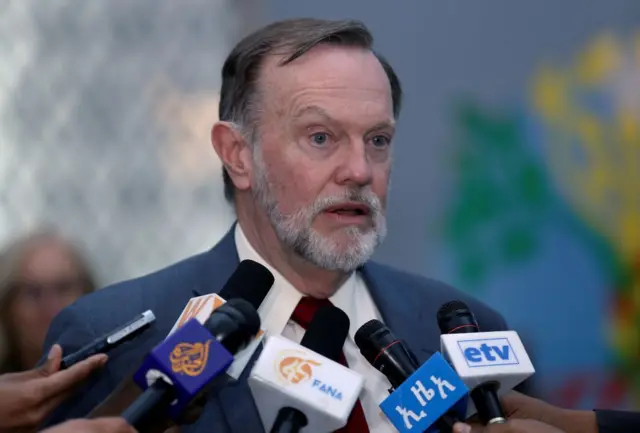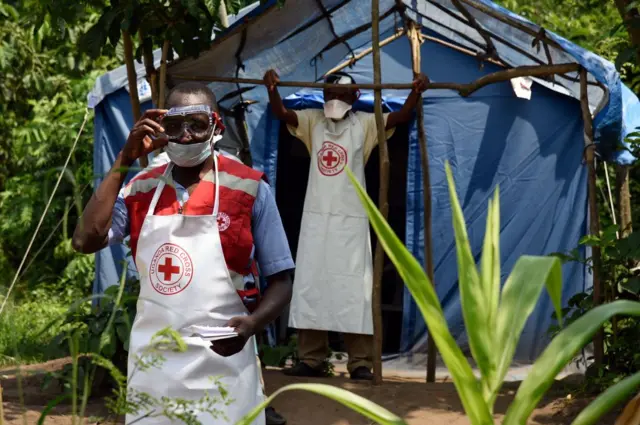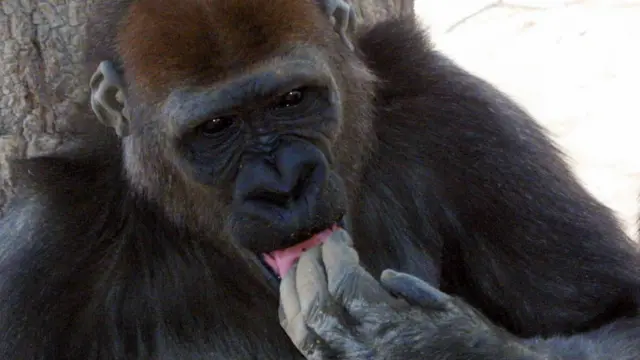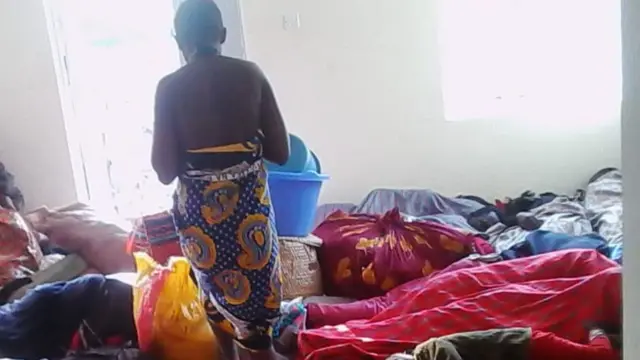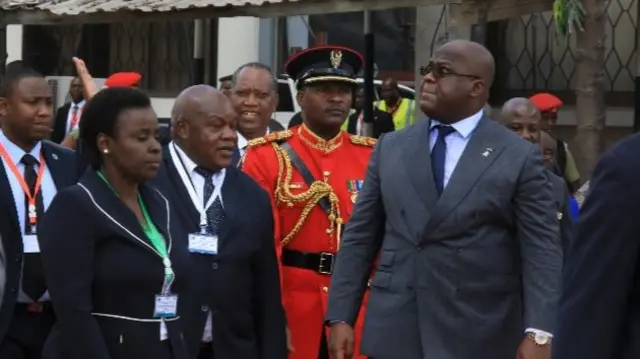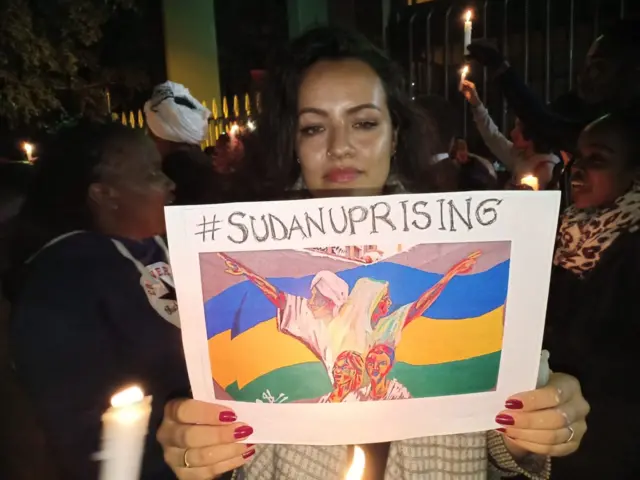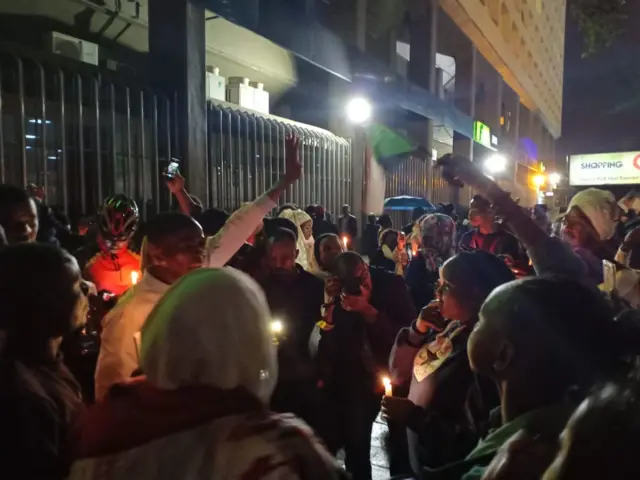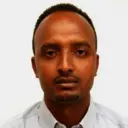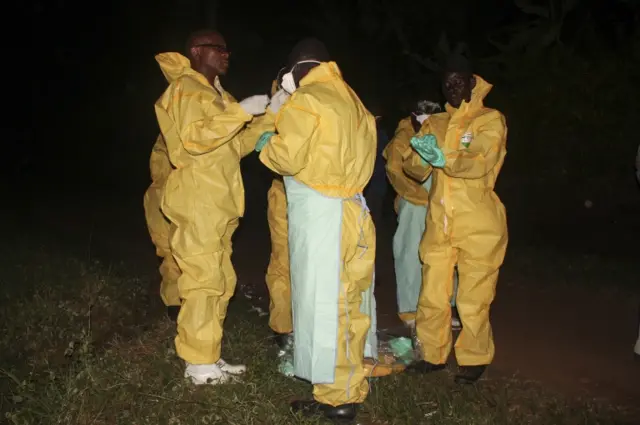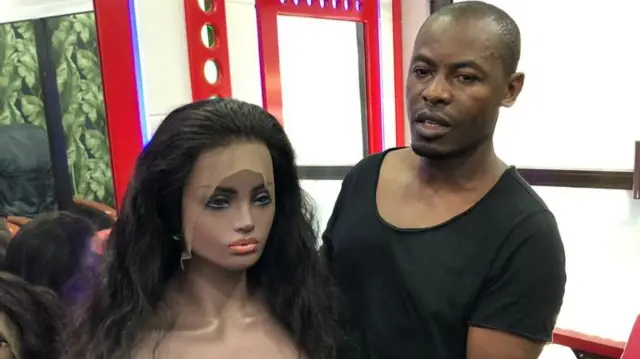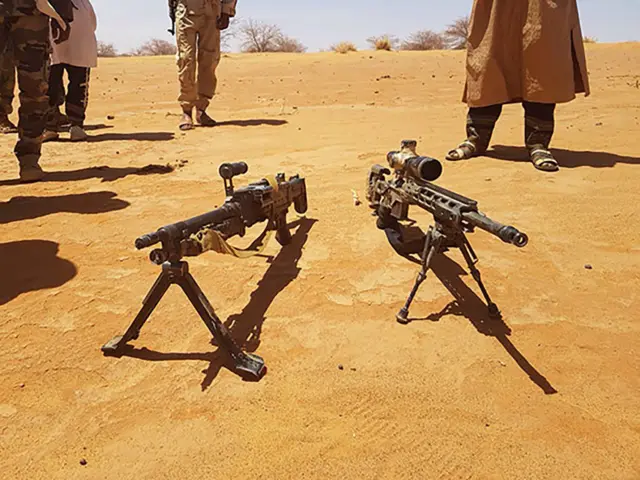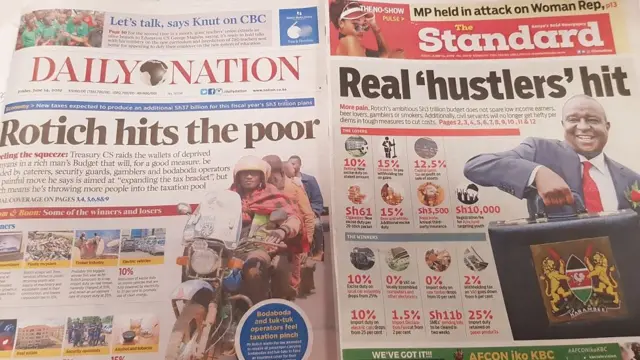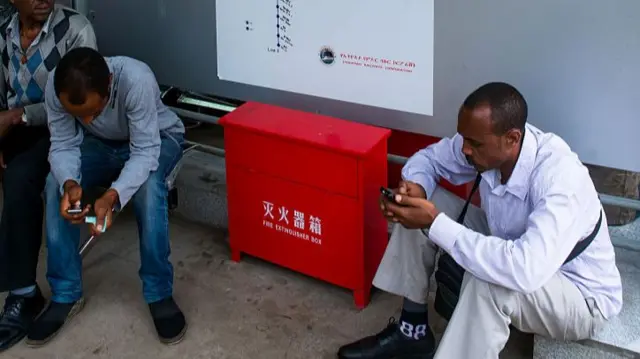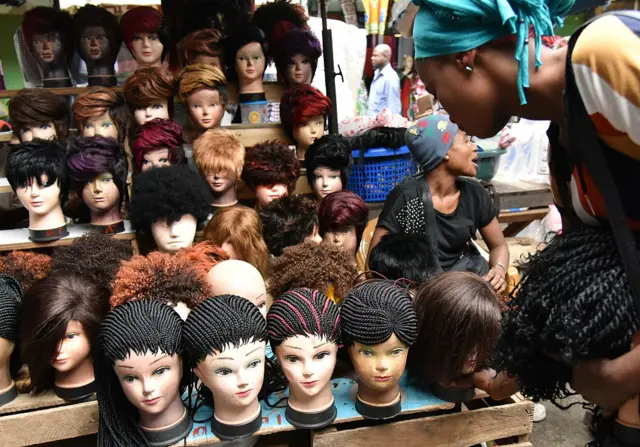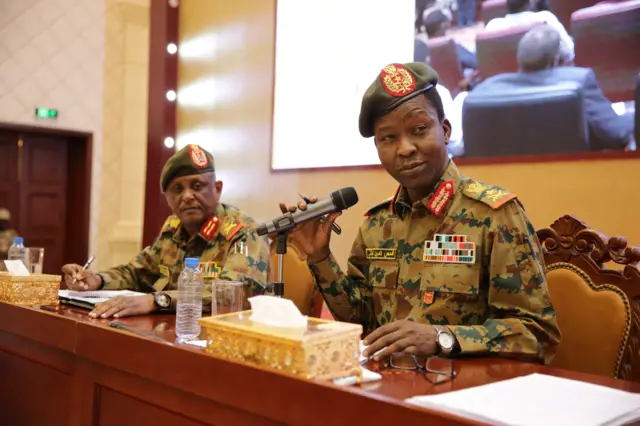Scroll down for Friday's storiespublished at 17:50 BST 14 June 2019
We'll be back on Monday
BBC Africa Live
Esther Namuhisa, Damian Zane and Natasha Booty
That's all from BBC Africa Live for this week. Keep up-to-date with what's happening across the continent by listening to the Africa Today podcast or checking the BBC News website.
A reminder of Friday's wise words:
Quote MessageWhat kills you starts in your tongue."
A Nuer proverb from South Sudan sent by Macheing Bill, Kuala Lumpur, Malaysia
Click here to send us your African proverbs.
And we leave you with these images from Dakar Fashion Week which ended on Sunday. They're among our favourite shots taken over the last seven days:
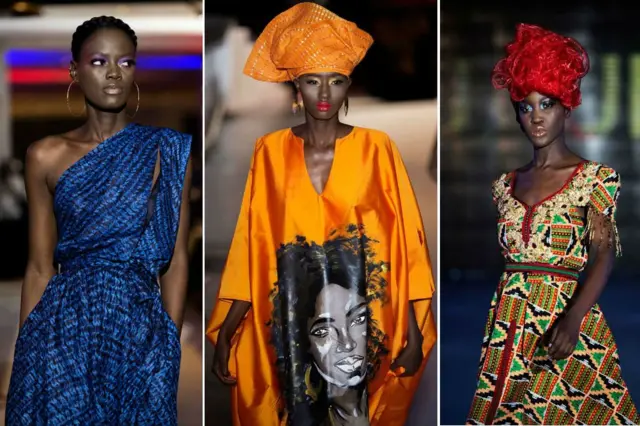 Image source, Getty Images
Image source, Getty Images